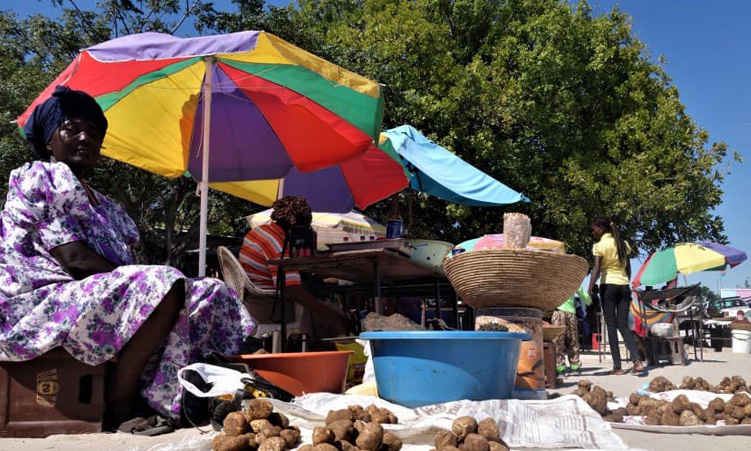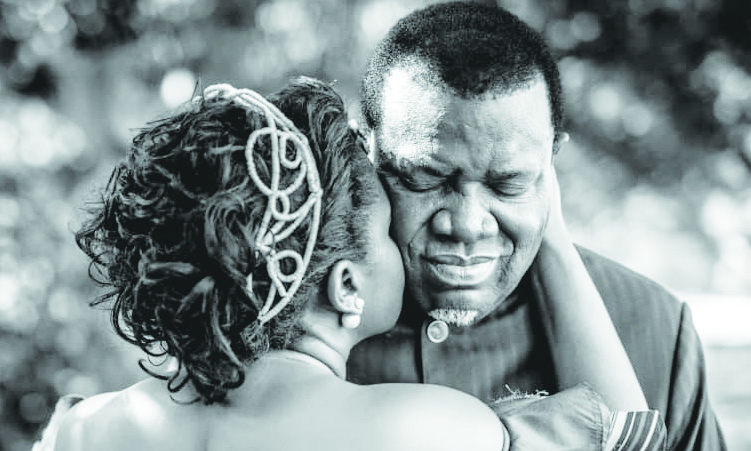BAGHDAD – A 24-year-old Military Policeman has been ordered to stand trial this month in the first court-martial scheduled in connection with abuse of Iraqi prisoners at Abu Ghraib prison, the military said yesterday.
Spc. Jeremy C. Sivits of Hyndman, Pennsylvania, a member of the 372nd Military Police Company, will stand trial in Baghdad on May 19, according to Brig. Gen. Mark Kimmitt. Sivits has been charged with conspiracy to maltreat subordinates and detainees, dereliction of duty for negligently failing to protect detainees from abuse and cruelty and maltreatment of detainees, Kimmitt said.Seven soldiers including Sivits are facing criminal charges for alleged abuse of Iraqi prisoners.Photographs of the abuse were published throughout the world.Sivits is the first for whom a trial date has been set.President George W. Bush vowed Saturday that “we will learn all the facts and determine the full extent of these abuses.Those involved will be identified.They will answer for their actions.”US officials have insisted that the abuses at Abu Ghraib was carried out by a handful of soldiers who failed to follow procedures and were not part of a systematic program of brutality.”It is not much larger than the people already suspended, and the number of people already charged,” Kimmitt said.”We may see more people involved.We still think this is still a very small number of guards involved.””Please don’t paint with such a wide brush that it indicts the other 135 000 American soldiers and Marines out there doing the right thing,” he added.The Army trained Sivits as a truck mechanic, not as a prison guard, his father, Daniel Sivits said.He said his son “was just doing what he was told to do.”Kimmitt told reporters that Sivit’s trial will be open to media coverage.On Saturday, the head of US detention centres in Iraq said the military has no plans to close the Abu Ghraib prison and blamed the abuse of detainees there on poor leadership and disregard for the rules.Maj. Gen. Geoffrey Miller said the United States does intend to cut the number of prisoners to help improve conditions but added that “we will continue to conduct interrogation missions at the Abu Ghraib facility.”Kimmitt said yesterday that 325 prisoners had been released from various detention centres over the past two weeks.Miller was named head of prisons in April after Brig.Gen. Janis Karpinski, the commander of Abu Ghraib, was suspended amid allegations of abuse by US soldiers at the prison.Miller said he visited all 14 prison facilities in Iraq to review procedures and that an Army team of 31 specialists was in the country retraining prison guards, a process that would last until June 30.”We will ensure that we follow our procedures,” he said.”It is a matter of honour.We were ashamed and embarrassed by the conduct of a very, very small number of our soldiers… On my honour, I will ensure that it will not happen again.”Miller said the “alleged abuses and abuses we have discovered from the investigations appear to be due to leaders and soldiers not following the authorised policy and lack of leadership and supervision.”Miller insisted that Iraqi prisoners were now being treated in accordance with the Geneva Conventions and that interrogation teams were following Army guidelines while trying to get “the best intelligence as rapidly as possible.”Miller said there were no plans to close Abu Ghraib and that if orders are received to close the lockup, the military would probably shift the mission to another facility, Camp Bucca, south of Basra.Abu Ghraib was a notorious prison under Saddam Hussein where detainees were routinely tortured and sometimes executed.Miller, the former commander of the US detention centre at Guantanamo Bay, Cuba, led a 30-member team to Iraq in August and September that focused on ways of sharpening interrogation procedures.In a report on the Abu Ghraib scandal, Maj. Gen. Anthony Taguba wrote that the team recommended “that the guard force be actively engaged in setting the conditions for successful exploitation of the internees.”Some military police at the prison have said they were instructed to “soften up” the prisoners before interrogation.”There was no recommendation ever by this group… that recommended that the military police become actively involved in the interrogation,” Miller said.Miller said he recommended that guards should monitor prisoners closely and pass on information to interrogators.Military police “should be involved in passive intelligence collection,” Miller said.One of the soldiers facing charges, Spc. Sabrina Harman, said she and other members of the 372nd Military Police Company took direction from Army military intelligence officers, CIA operatives and from civilian contractors who conducted interrogations.In an interview by e-mail from Baghdad, Harman told The Washington Post it was made clear that her mission was to break down the prisoners.”They would bring in one to several prisoners at a time already hooded and cuffed,” Harman said.”The job of the MP was to keep them awake, make it hell so they would talk.”Harman, 26, is one of two smiling soldiers seen in a photo taken at Abu Ghraib as they stand behind naked, hooded Iraqi prisoners stacked in a pyramid.- Nampa-APSivits has been charged with conspiracy to maltreat subordinates and detainees, dereliction of duty for negligently failing to protect detainees from abuse and cruelty and maltreatment of detainees, Kimmitt said.Seven soldiers including Sivits are facing criminal charges for alleged abuse of Iraqi prisoners.Photographs of the abuse were published throughout the world.Sivits is the first for whom a trial date has been set.President George W. Bush vowed Saturday that “we will learn all the facts and determine the full extent of these abuses.Those involved will be identified.They will answer for their actions.”US officials have insisted that the abuses at Abu Ghraib was carried out by a handful of soldiers who failed to follow procedures and were not part of a systematic program of brutality.”It is not much larger than the people already suspended, and the number of people already charged,” Kimmitt said.”We may see more people involved.We still think this is still a very small number of guards involved.””Please don’t paint with such a wide brush that it indicts the other 135 000 American soldiers and Marines out there doing the right thing,” he added.The Army trained Sivits as a truck mechanic, not as a prison guard, his father, Daniel Sivits said.He said his son “was just doing what he was told to do.”Kimmitt told reporters that Sivit’s trial will be open to media coverage.On Saturday, the head of US detention centres in Iraq said the military has no plans to close the Abu Ghraib prison and blamed the abuse of detainees there on poor leadership and disregard for the rules.Maj. Gen. Geoffrey Miller said the United States does intend to cut the number of prisoners to help improve conditions but added that “we will continue to conduct interrogation missions at the Abu Ghraib facility.”Kimmitt said yesterday that 325 prisoners had been released from various detention centres over the past two weeks.Miller was named head of prisons in April after Brig.Gen. Janis Karpinski, the commander of Abu Ghraib, was suspended amid allegations of abuse by US soldiers at the prison.Miller said he visited all 14 prison facilities in Iraq to review procedures and that an Army team of 31 specialists was in the country retraining prison guards, a process that would last until June 30.”We will ensure that we follow our procedures,” he said.”It is a matter of honour.We were ashamed and embarrassed by the conduct of a very, very small number of our soldiers… On my honour, I will ensure that it will not happen again.”Miller said the “alleged abuses and abuses we have discovered from the investigations appear to be due to leaders and soldiers not following the authorised policy and lack of leadership and supervision.”Miller insisted that Iraqi prisoners were now being treated in accordance with the Geneva Conventions and that interrogation teams were
following Army guidelines while trying to get “the best intelligence as rapidly as possible.”Miller said there were no plans to close Abu Ghraib and that if orders are received to close the lockup, the military would probably shift the mission to another facility, Camp Bucca, south of Basra.Abu Ghraib was a notorious prison under Saddam Hussein where detainees were routinely tortured and sometimes executed.Miller, the former commander of the US detention centre at Guantanamo Bay, Cuba, led a 30-member team to Iraq in August and September that focused on ways of sharpening interrogation procedures.In a report on the Abu Ghraib scandal, Maj. Gen. Anthony Taguba wrote that the team recommended “that the guard force be actively engaged in setting the conditions for successful exploitation of the internees.”Some military police at the prison have said they were instructed to “soften up” the prisoners before interrogation.”There was no recommendation ever by this group… that recommended that the military police become actively involved in the interrogation,” Miller said.Miller said he recommended that guards should monitor prisoners closely and pass on information to interrogators.Military police “should be involved in passive intelligence collection,” Miller said.One of the soldiers facing charges, Spc. Sabrina Harman, said she and other members of the 372nd Military Police Company took direction from Army military intelligence officers, CIA operatives and from civilian contractors who conducted interrogations.In an interview by e-mail from Baghdad, Harman told The Washington Post it was made clear that her mission was to break down the prisoners.”They would bring in one to several prisoners at a time already hooded and cuffed,” Harman said.”The job of the MP was to keep them awake, make it hell so they would talk.”Harman, 26, is one of two smiling soldiers seen in a photo taken at Abu Ghraib as they stand behind naked, hooded Iraqi prisoners stacked in a pyramid.- Nampa-AP
Stay informed with The Namibian – your source for credible journalism. Get in-depth reporting and opinions for
only N$85 a month. Invest in journalism, invest in democracy –
Subscribe Now!






